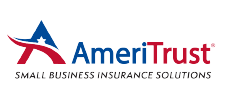Helping Dentists Navigate Their Finances
From tax planning and compliance to practice growth strategies, we understand the challenges and opportunities of healthcare finance. Let us help you on providing quality patient care while we manage the financial health of your practice. Discover how we can support your success throughout your business life cycle.
Less Than A Month Away!
We are now less than a month away from the start of our two-day convention in Bridgewater… now is the time to pick your CE courses and make your plans to be part of this exciting gathering of the NJ dental community!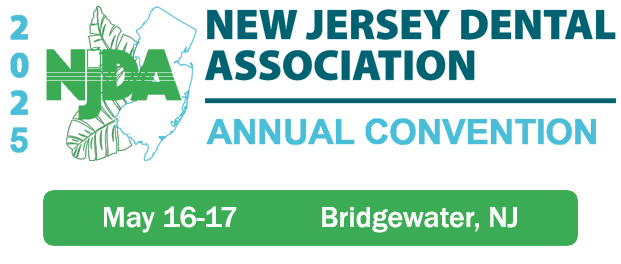
RSVP By May 1st
The NDJA Celebration on May 16 is going to be huge! We are taking over the entire 7th floor of the AC Hotel including three bars, outside patio, pool table, DJ and dance floor!
New Jersey Dental Foundation
Take a moment to learn more about NJDA's brand new initiative to help the public learn more and gain access to oral healthcare! Read the mission statement, governance, structure and more.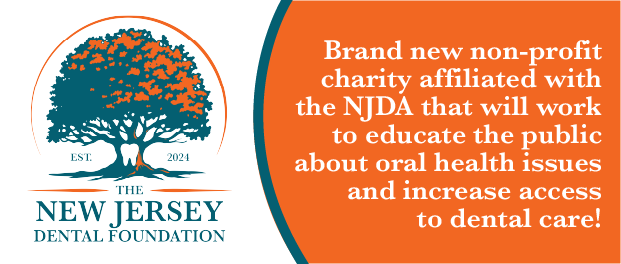
This is membership your way
Renew today to explore new lower membership costs and customization offerings.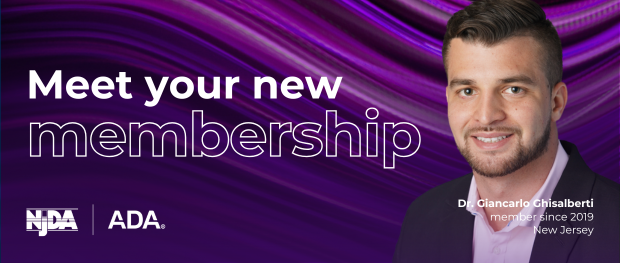
Helping Members Succeed
The New Jersey Dental Association is the voice of the dental profession and a strong proponent of oral health in the state. Members are part of a vibrant community of dentists encompassing 12 local dental societies as well as the American Dental Association. Members engage in educational programs, have access to dentist-centric relationships and tools to navigate the business of dentistry and their careers, as well as benefit from dedicated advocacy that protects the interests of the profession. The organization is run by member-dentists with the support of a team of professionals at NJDA Headquarters. NJDA members never practice alone!
UPCOMING EVENTS
DENTAL NEWS AND NOTES

Privacy Violations in the Dental Practice: How They Happen and How to Prevent Them
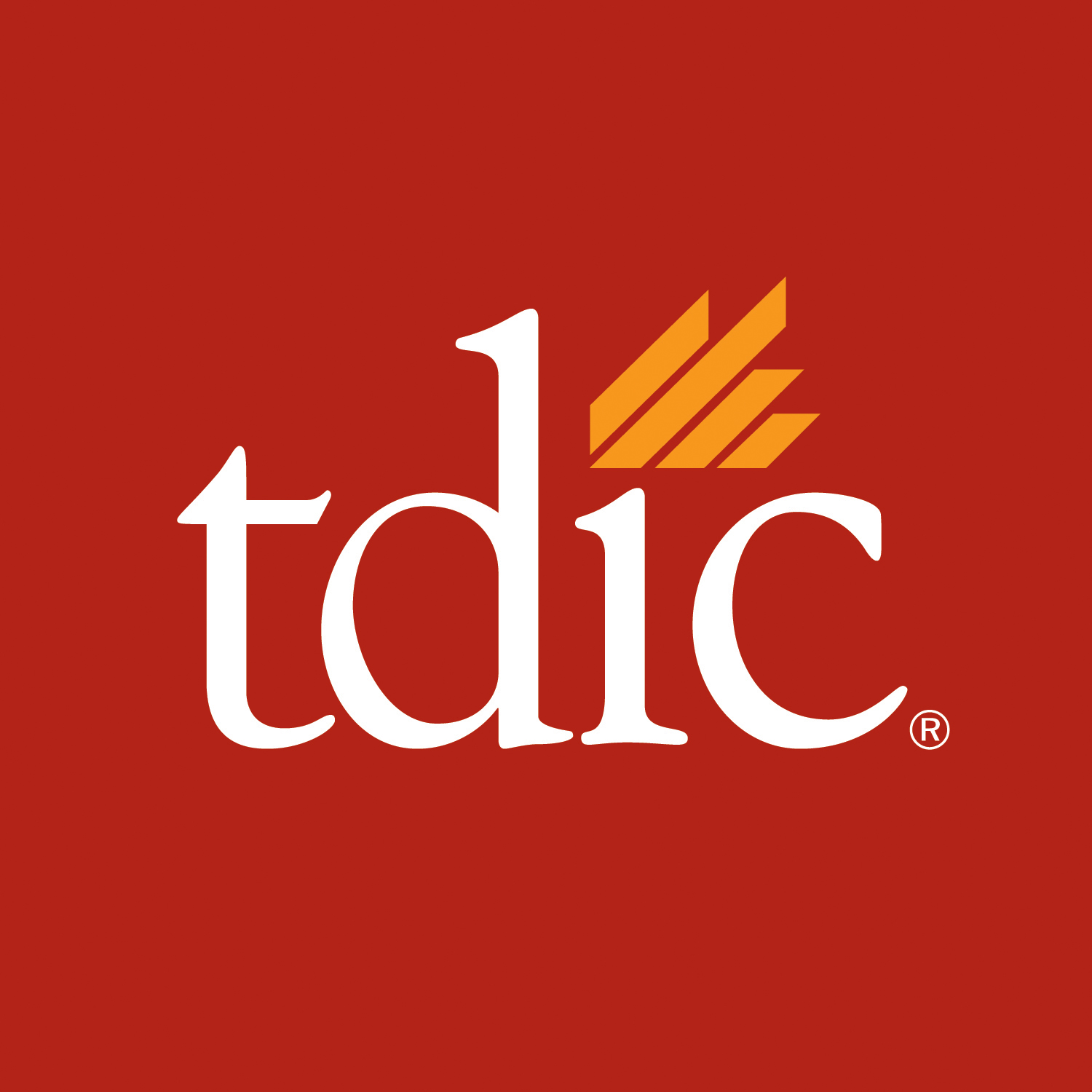
In the digital age, safeguarding patient information has become paramount for dental professionals. The Health Insurance Portability and Accountability Act (HIPAA) serves as a protective shield for patient privacy and ensures the confidentiality of patients’ medical records. A crucial aspect of HIPAA compliance involves preventing privacy violations.
The Dentists Insurance Company’s Risk Management Advice Line, which provides guidance to TDIC policyholders and dental association members, regularly receives inquiries about the appropriate procedures for preventing and responding to privacy violations. Risk management analysts offer insights into how privacy violations can occur, practical strategies for maintaining compliance and what you can expect if you are investigated by the Office for Civil Rights (OCR).
How Privacy Violations OccurPrivacy violations can occur in dental practices through various means, many of which seem innocuous. Understanding these potential pitfalls is essential to avoid HIPAA breaches:
- Unauthorized access. One of the most common privacy violations occurs when employees or individuals gain unauthorized access to patient records. This can happen through lax security measures, sharing of passwords or failure to implement access controls.
- Lost or stolen devices. Dental professionals often use digital devices to store and access patient data. Losing a laptop, tablet or smartphone containing patient information can result in a serious breach if the data is not properly encrypted or secured.
- Social engineering. Cybercriminals may use social engineering techniques to manipulate employees to reveal sensitive patient information. This can happen through phishing emails, phone calls or in-person manipulation.
- Weak passwords. Inadequate password protection leaves patient records vulnerable to unauthorized access. Dental practices should implement strong password policies and consider multi-factor authentication to enhance security.
- Unencrypted communications. Sharing patient information through unencrypted email or messaging services can lead to privacy violations. Implementing secure communication methods is crucial to avoid such breaches.
- Improper disposal. Improperly disposing of patient records or documents containing sensitive patient information without ensuring their secure destruction can lead to privacy violations.
What Privacy Violations Look LikeTDIC Risk Management analysts and HIPAA compliance software specialists at Abyde share some real-world examples of what privacy violations can look like in dental practices:
- A large dental practice falls victim to a cyberattack that comprises its entire database of patient records. Personal information, medical histories and even Social Security numbers are exposed, leaving thousands of individuals vulnerable to identity theft and other potential harm.
- A dentist carelessly discusses a patient’s confidential medical condition with friends during a casual gathering. What the dentist considers “meaningless” gossip spreads to an acquaintance of the patient and eventually gets back to the patient. The patient feels humiliated, and the dentist is investigated for HIPAA violations, suffering damage to his reputation.
- Driven by curiosity or malintent, a dental practice staff member intentionally accesses patient records without a valid reason and betrays their ethical responsibilities.
- A dentist accidentally sends a patient’s medical records to the wrong person. This mistake exposes sensitive information to an unintended recipient, potentially compromising the patient’s privacy and causing emotional distress.
- A dentist’s mobile device, containing unencrypted patient data, becomes misplaced or stolen. The consequences of the lost, unprotected device may be severe – ranging from identity theft to extortion or even unauthorized disclosure of personal health information if caught in the wrong hands.
Addressing the Right of AccessThe Right of Access is a fundamental aspect of HIPAA compliance that allows patients to access their medical records upon request. Dental professionals must ensure that patients can easily obtain their records while safeguarding their privacy. TDIC’s Risk Management analysts offer the following guidance to provide safe and timely access:
- Create a clear policy outlining how patients can request access to their records and the timeframe in which they will receive the records. TDIC policyholders and dental association members can reference this sample form as a resource.
- Train your staff to handle patient requests for access professionally and promptly. TDIC provides policyholders and dental association members a reference guide about access to patient records.
- Ensure that patient records are securely transmitted to avoid potential breaches during the sharing process.
- Verify the identity of the patient making the request to prevent unauthorized access.
- Keep detailed records of all access requests and provide patients with a copy of their records in a secure manner.
Social Media and Website TrackingDental practices are increasingly active on social media platforms and maintain websites to market their services to new patients. However, these digital channels can also pose risks when it comes to privacy violations. Risk management experts suggest the following to safeguard patient privacy:
- Develop clear guidelines for staff regarding what can and cannot be shared on social media platforms. Ensure that no patient information is disclosed without proper consent. TDIC policyholders and dental association members can use this sample form as an example of appropriate consent.
- If your website uses tracking tools like cookies, ensure that you inform visitors and provide them with options to opt out of such tracking.
- When collecting patient information through your website, obtain explicit consent and inform patients about how their data will be used.
Technology Tools and Actions for ComplianceStaying HIPAA compliant in the digital age requires the use of technology tools. TDIC analysts recommend consistent use of:
- Electronic health records (EHR). Implement EHR systems, like Abyde, with robust security features to protect patient data.
- Encryption. Encrypt patient data at rest and during transmission to ensure its confidentiality.
- Regular training. Continuously educate your staff about HIPAA regulations and best practices for safeguarding patient information.
- Secure messaging. Use secure messaging platforms for internal communications, especially when discussing patient information.
- Risk assessment. Conduct regular risk assessments to identify and address potential vulnerabilities in your practice's data security.
OCR and InvestigationsIf a privacy violation occurs in your dental practice, the Office for Civil Rights (OCR) may investigate the incident. The OCR is responsible for enforcing HIPAA regulations and ensuring compliance within the health care industry. If you are investigated, here’s what to expect:
- The OCR will typically start with an inquiry requesting information about the privacy violation. This may involve providing details about the incident, how it occurred and what steps have been taken to mitigate the damage.
- In more serious cases, the OCR may conduct on-site audits of your dental practice to assess HIPAA compliance comprehensively. During these audits, they will review your practice policies, procedures and safeguards.
- Depending on the severity of the privacy violation, the OCR may impose penalties ranging from fines to corrective action plans. The fines can be substantial, often reaching thousands or even millions of dollars.
- Beyond financial penalties, privacy violations can harm your dental practice's reputation. Patients may lose trust in your ability to protect their sensitive information, potentially leading to a loss of business.
HIPAA compliance is essential for dentists and their practices to protect patient privacy and avoid the severe consequences of privacy violations. Remember that compliance is an ongoing process, and staying vigilant is key to success in this digital age of healthcare. When questions or concerns about HIPAA compliance arise in your dental practice, consult TDIC’s Risk Management Advice Line.
For use by the California Dental Association components, the Arizona, Hawaii, Idaho, Nevada, New Jersey, North Dakota, Oregon, Pennsylvania and Washington dental associations, the Alaska Dental Society and the Illinois State Dental Society. If you wish to reprint this article, contact TDIC in advance by emailing info@tdicins.com. If you would like to request edits to this article prior to publishing, include the suggested changes in your email.
Contact Us
Phone: 732-821-9400 or dial the Staff Directly
Fax: 732-821-1082 | Email: info@njda.org | Follow us @NJDentalAssoc
One Dental Plaza, North Brunswick, NJ 08902










